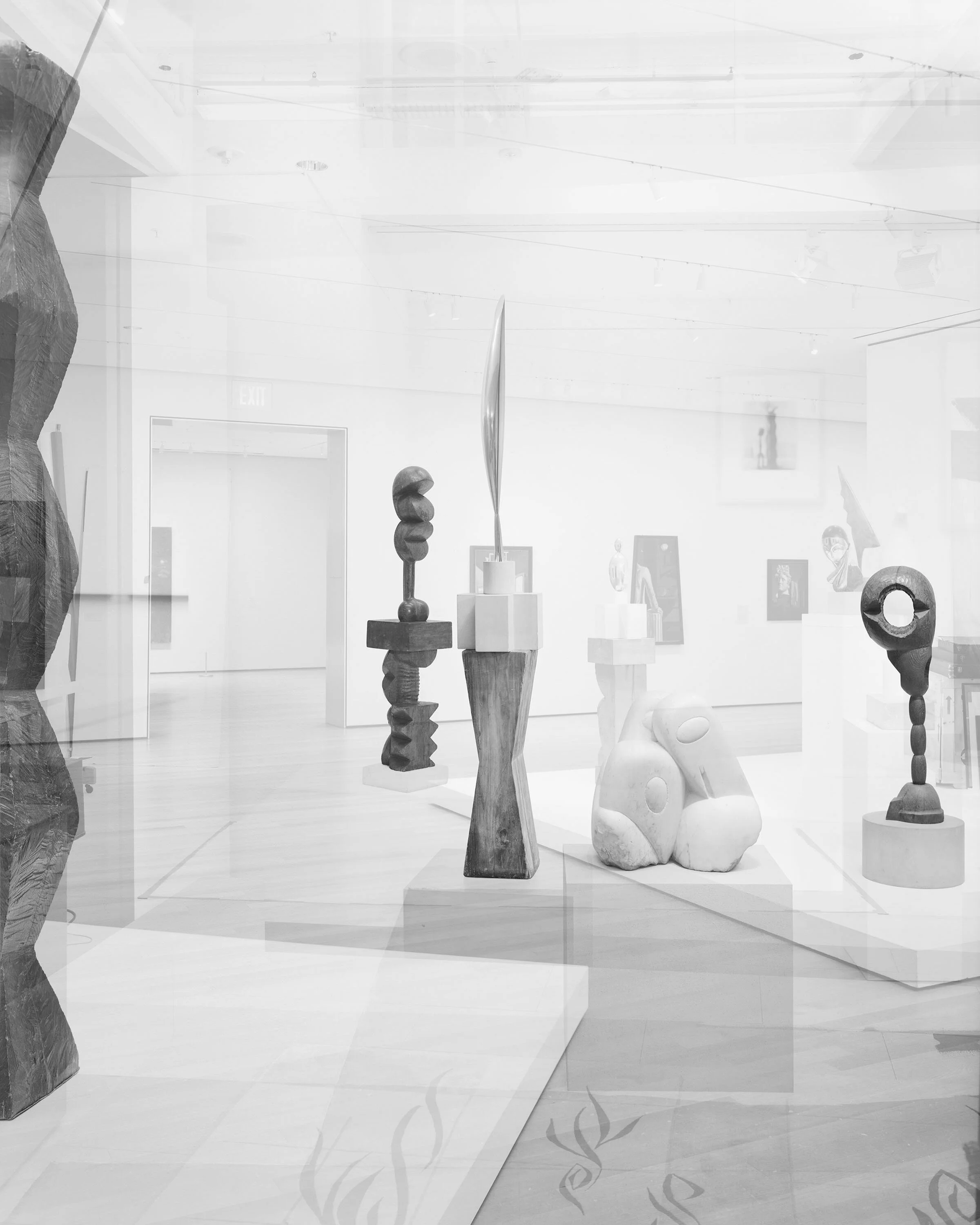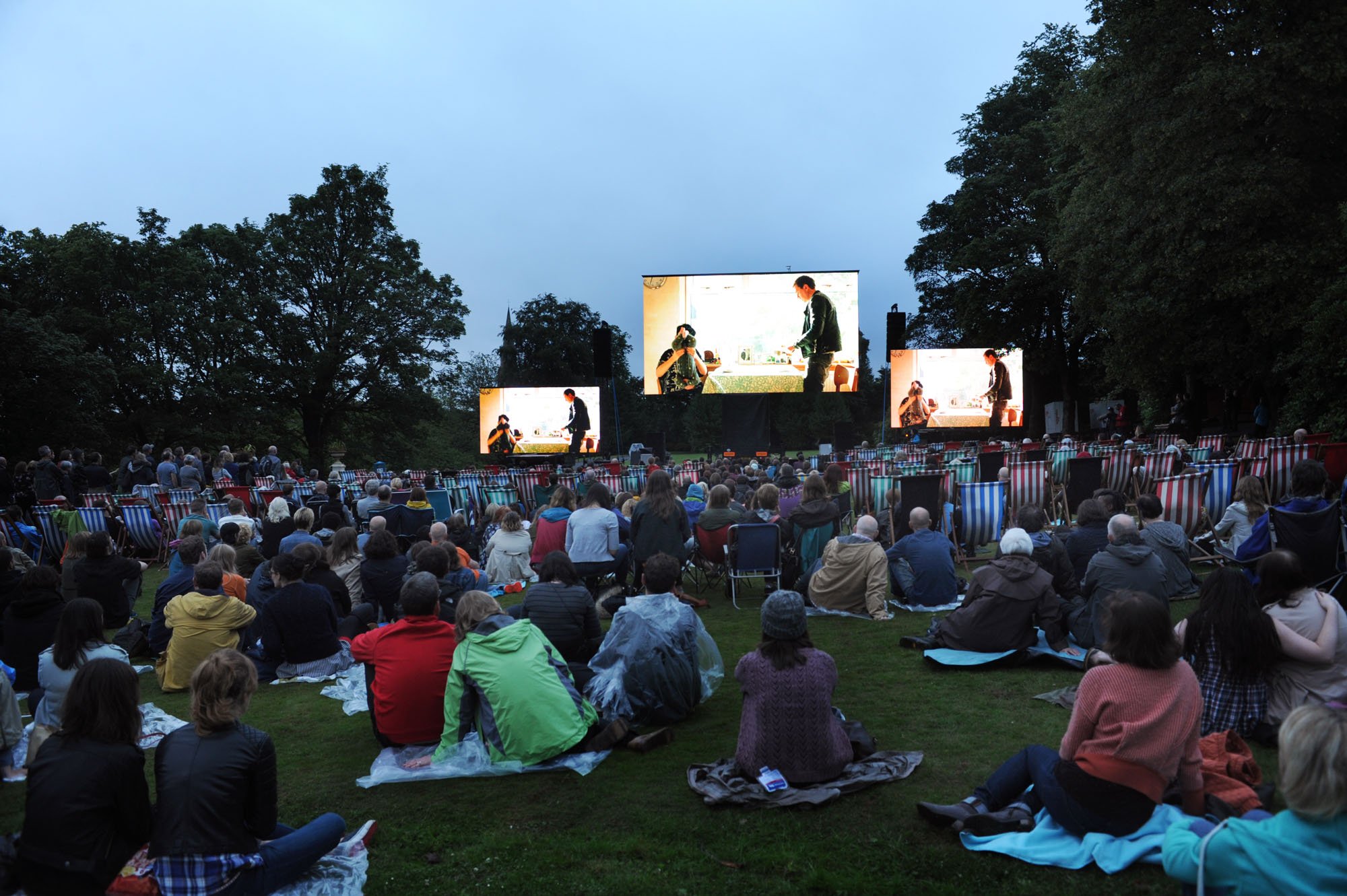
Phil Collins – 'Tomorrow Is Always Too Long'
Phil Collins, ‘Tomorrow Is Always Too Long’ (2014). Production still. Courtesy Shady Lane Productions, Berlin.
While we are all confined and unable to see art in the places we would normally due to the restrictions related to the Coronavirus pandemic, both here in the UK and across the globe, we wanted to acknowledge the extra-ordinary circumstances in which we find ourselves, stripped of our public selves: socially isolated, physically distant, conscious more than ever of the social infrastructure that keeps us afloat. We therefore decided to make Phil Collins’ 'Tomorrow Is Always Too Long' (2014) available for viewing online for the first time, until 30th April.
It’s not every artwork that can exist online and we look forward to the day when we can experience a sculpture in the round again. But in the meantime, we are grateful to Phil Collins for allowing us to share his film that conjures a social life, from the particular perspective of Glasgow, so well.
The project began as a conversation, many years prior, about what brings people together, where and how. The resultant work is a feature-length film that was made in and for Glasgow, to be shown in one of the city’s public parks.
'Tomorrow Is Always Too Long' was filmed in Glasgow in 2014 (the full list of locations is included in the film’s credits) and first presented to the public as a ‘one-night only outdoor art event’ on 19 July in Queen’s Park. It is made up of three distinct and intermingling strands, each in a different style – film, television and animation. At 82 minutes long, it is an epic that tracks the trajectory of human experience, from birth, through schooling to adulthood, and old age. The first strand is the most cinematic, presented in six different segments, each starting with a real life scenario or situation – such as an ante-natal class, a school lunch break, or a local nightclub– and building to a song, not unlike a musical. The protagonist on screen is the voice you hear in performance, each singing a song originally written by Cate Le Bon (taken from her 2013 album ‘Mug Museum’), accompanied by full orchestration developed and performed specially for the film by the RSNO.
The second strand is a series of short animations, crafted by Matthew Robins (Sad Lucy) and with music composed by Barry Burns (Mogwai), which follow a group of characters on a hedonistic night out, from getting ready to crashing out, with city scenes that are recognisably Glaswegian. The third strand uses the language of cable TV or a community television channel to revisit a number of familiar formats – a fortune teller (played by the brilliant Kate Dickie), teleshopping, a talk show – co-created with local participants. By turns witty, incisive, moving and pointed, these low-fi vignettes offer a biting commentary on aspects of contemporary culture.
In their own distinct ways, the three main strands echo the very points of contact between the public and the private: the musical with singers voicing their private, innermost thoughts; the cable TV as a vehicle for going public; while the animation retains the capacity for fantasy, best exemplified by the appearance of characters such as a giraffe with a top-hatted ‘will-o-the-wisp’, or a nimble-fingered squirrel.
At the time, we wrote, “In 2014 Collins met people in maternity hospitals, schools, community groups, and social clubs for the elderly, asking them to sing songs, make predictions for the future, debate the status of freedom in today’s society, guide us through the city’s most famous prison, and dance like there’s no tomorrow. These sequences were framed through an imaginary public-access network, one which, high on bad attitude and with just a hint of mayhem, makes an appeal to the epic pleasures of channel surfing and the potential for low-budget television to reinvent itself through its viewers and their take on life as we somehow still live it”.
The project grew out of a conversation about public gatherings and was particularly inspired by Glasgow’s parks, most of which had been adorned with bandstands that had been either destroyed, replaced or fallen into complete disuse. The bandstand in Queen’s Park, which had been the site of many a gathering, both for concerts and political rallies, had been destroyed. During the initial research, we unearthed programmes for the concerts that used to take place in the park and a comment that they died out ‘due to television’. If television killed off the bandstand, what would it take to get people to gather freely in a park again? What would it be like if we put the television in the park?
The film was shown in Queen’s Park on a large rectangular plateau – what had once been a rose garden – towards the top of the park’s hill, which allowed for the installation of three large LED screens, the biggest of which was 14m in width, and an audience of around 1,500 people. Despite taking place in July, the day of the event saw a deluge, with the park and everyone in it working on the build utterly soaked. However, the rain stopped as if by magic an hour before we were due to begin and by 9pm, the sky was the most incredibly vivid colour as people arrived onto the site and settled down to watch the film from the grass, deckchairs and park benches, with the city skyline in the background.
The film and its sound design was made for scale, so we recommend watching on the biggest screen you can, with the best sound available (headphones or speakers), and imagine you are in a park on a summer night with friends, when 'Tomorrow Is Always Too Long' took the audience on a trip deep into the heart of the city and beyond.
Project Details
‘Tomorrow Is Always Too Long’ was screened online for a limited time in April 2020.
Watch a short film of the original event that took place at Queen’s Park in 2014 below.
Related

Screening / Phil Collins, 'Tomorrow Is Always Too Long'
Phil Collins, 'Tomorrow Is Always Too Long' (2014) video still. Courtesy of the artist.
As part of 'Crossing the Line' a series of screenings relating to films that push at the boundaries between visual art and cinema, Phil Collins’ film ‘Tomorrow Is Always Too Long’ screens at Glasgow Film Theatre, followed by a Q&A with The Common Guild Director, Katrina Brown.
‘Tomorrow is Always Too Long’ was originally commissioned by The Common Guild as part of Festival 2014 and screened in for one night only in Queen’s Park.
Related

Phil Collins – 'Tomorrow Is Always Too Long'
‘Tomorrow Is Always Too Long’ is a project by Phil Collins that conjures a distinctive vision of Glasgow from the perspective of institutions that describe the scope of human experience and define us as social beings.
In 2014 Collins met people in maternity hospitals, schools, community groups, and social clubs for the elderly, asking them to sing songs, make predictions for the future, debate the status of freedom in today’s society, guide us through the city’s most famous prison, and dance like there’s no tomorrow. These sequences were framed through an imaginary public-access network, one which, high on bad attitude and with just a hint of mayhem, makes an appeal to the epic pleasures of channel surfing and the potential for low-budget television to reinvent itself through its viewers and their take on life as we somehow still live it.
Phil Collins, 'Tomorrow Is Always Too Long' (2014) video still. Courtesy of the artist.
With animation by Matthew Robins and stellar soundtrack contributions from Welsh pop-enigma Cate Le Bon, Mogwai’s very own Barry Burns, local voodoo ravers Golden Teacher, and the esteemed Royal Scottish National Orchestra, ‘Tomorrow Is Always Too Long’ took the audience on a trip deep into the heart of the city and beyond.
Project Details
‘Tomorrow Is Always Too Long’ was presented in Queen’s Park as a one-night-only free event. Centered around an installation of multiple LED screens set up in the old rose garden, an open terrace with views over the city and the hillside beyond, this memorable evening evoked the park’s great tradition of public gatherings, from political protests to music festivals.
An official Festival 2014 event.
Related

Primer / Phil Collins
Phil Collins, 'Tomorrow Is Always Too Long' (2014) video still. Courtesy of the artist.
In collaboration with the University of Glasgow, The Common Guild presents a primer event with visual artist Phil Collins to accompany his major project for Queen’s Park and Festival 2014, 'Tomorrow Is Always Too Long'. The event offers a chance to hear from Collins about his work and the development of his project for Glasgow.
Introduced by Dr Dominic Paterson.
Project Details
‘Primers’ offer an opportunity to hear from artists developing projects with The Common Guild and are presented in collaboration with the University of Glasgow.














